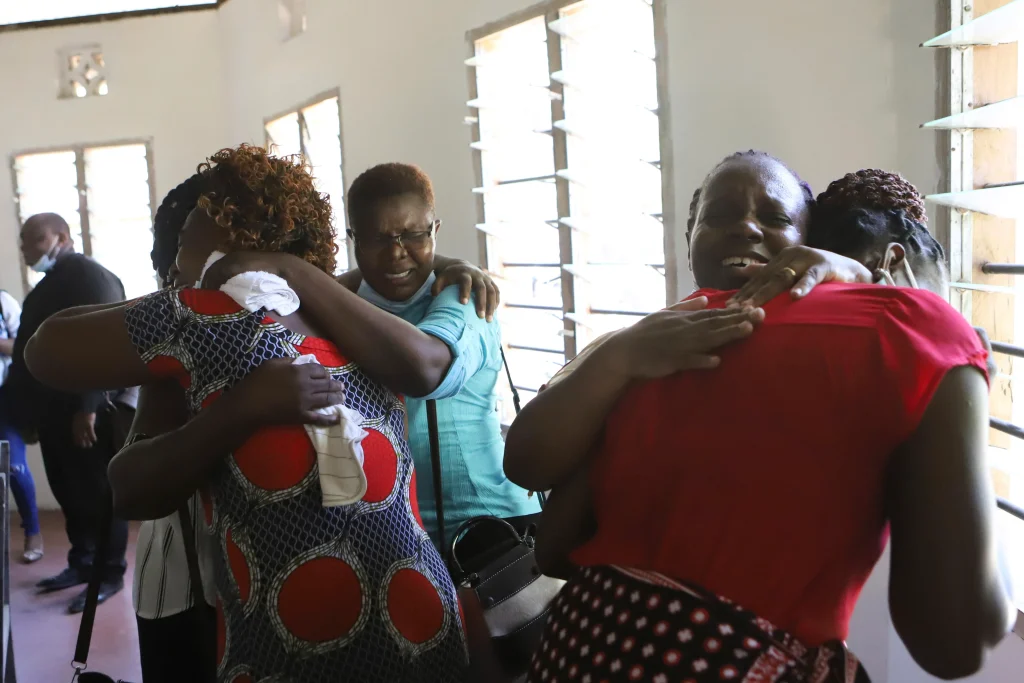Authorities in Kenya have begun releasing the remains of some of those who died in a cult that allegedly encouraged them to starve themselves to death. Out of the 429 bodies exhumed from the remote Shakahola forest in the east of the country, 34 have been identified with the help of DNA samples from their relatives. On Tuesday, seven were handed over to three families.
Self-proclaimed Pastor Paul Nthenge Mackenzie preached an apocalyptic message that the end times were near. He’s accused of inciting hundreds of his followers to ‘fast’ in order to see Jesus more quickly, something he denies.
High-school teacher Francis Wanje received four bodies, including those of his daughter, son-in-law, and grandson. He lost eight members of his family, and their disappearance helped lead investigators to the discovery of mass graves in the vast forest.

Relatives were given psychological counselling from members of the International Committee of the Red Cross (ICRC). ICRC staff also supported some of them as they wailed and cried when taken to view the remains of their loved ones.
The painstaking process of identification has taken a year because many of the bodies were badly decomposed, there were an overwhelming number of cases, and there were not enough reagents and equipment to conduct all the DNA tests.
The Kenya National Commission on Human Rights has deplored the delay. But the chief government pathologist, Johansen Oduor, said last week that most of the families had not been coming to claim the bodies, making it a challenge to get DNA samples.
There is also the issue of cost. The son and brother of one of the deceased travelled by bus from a county in western Kenya and could not afford to transport the body home. They are appealing for help, but the government has reportedly said it is up to the families to organise the burial of their dead.
Last month, Mackenzie and 29 other defendants were charged with several crimes, including the murder of 191 children, to which they pleaded not guilty.


